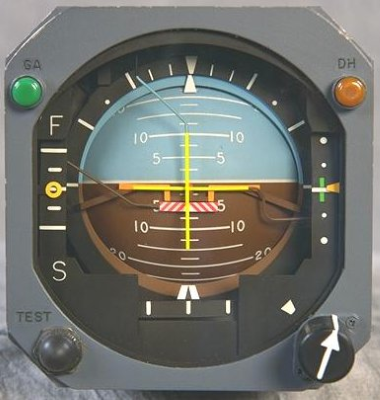All pilots are subject to flight reviews to check their skills, as well as maintain their privileges to fly.
Private pilots through Airline Transport Pilots (ATPs) must undergo a Biennial Flight Review (BFR) or other, often more frequent reviews, to maintain their flight privileges.
The Instrument Proficiency Check (IPC) is a flight review for pilots who hold a valid instrument rating but have not recently flown using instrument procedures.
Simply, an IPC is a full review of knowledge and procedures needed to fly an aircraft on an instrument flight plan and fly under instrument meteorological flight conditions (IMC).
Related Article – Airline Transport Pilot Certificate (ATP): 4 Things You Need To Know
1. Instrument Proficiency Check (IPC) Requirements
To maintain your instrument flight privileges, you must have flown and logged, within the preceding 6 months:
- Six instrument approaches.
- Holding procedures and tasks.
- Intercepting and tracking courses using electronic navigational systems.
If, at the end of six months, you are not current, you have an additional six months—the “grace period”—to regain your currency by flying the above requirements with:
- A safety pilot (in VFR conditions with a vision restricting device)
- A certified flight instructor (CFI)
- A certified instrument flight instructor (CFII)
If your six-month grace period has expired, you must complete the IPC with a CFII to fulfill the IPC requirements.
2. What Is An Instrument Proficiency Check (IPC)?
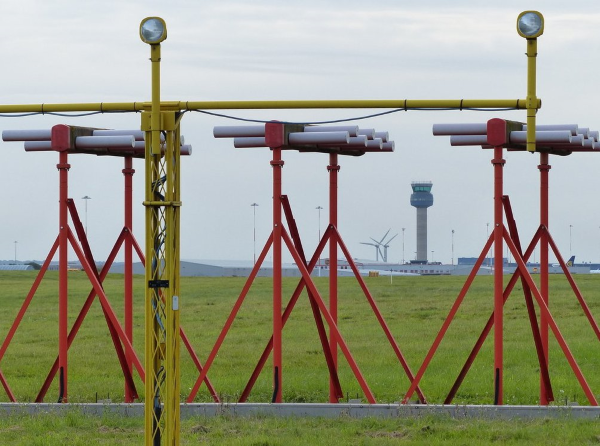
Simply, and IPC, conducted by a CFII, is a full review of knowledge and procedures needed to safely fly an aircraft on an instrument flight plan flown under actual or simulated (“under the hood”) instrument meteorological flight conditions.
The IPC is conducted in two parts:
- Preflight discussion that involves answering questions, solving problems, and demonstrating knowledge of procedures, requirements, and knowledge of instrument flight requirements.
- A flight that involves planning a route, collecting weather information relevant to that flight, preparing a flight plan, flying the flight, and properly reacting to instructions and deviations provided the IPC check pilot.
This will be followed by a post-flight debriefing and evaluation that will result in: (1) an endorsement in your logbook for instrument flight, or (2) a recommendation for additional practice and review in areas of weakness identified by the CFII.
During the preflight portion of the IPC, pilots may ask questions about any topic on which they are not completely clear.
An important benefit of the IPC, especially for older pilots, is to ensure they are familiar with the latest navigation equipment and navigation and approach procedures.
In any case, the IPC should be viewed as an opportunity to learn.
Related Article – 12 Runway Markings and Signs Explained By An Actual Pilot
3. What Can I Expect During An Instrument Proficiency Check (IPC)?
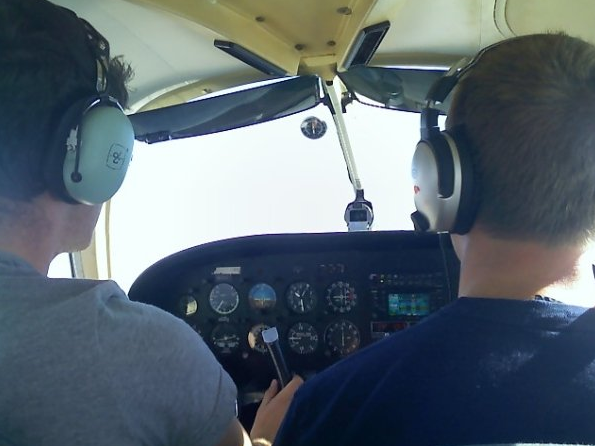
The objectives of the IPC are to:
- Assess your knowledge of instrument flight (including subjects such as Federal Aviation Regulations, the Airman’s Information Manual, meteorology, flight planning, aircraft performance, aircraft navigation systems, and emergency procedures.
- To demonstrate your ability to properly plan and fly a route under actual or simulated instrument meteorological conditions.
Often, the IPC is conducted by a CFII who does not know you, and therefore, will use the IPC to ensure you possess the essential knowledge of instrument flight rules, planning, and procedures as well as demonstrate the essential skills to fly and manage an aircraft under all phases of flight in instrument meteorological conditions.
Regulations for the flight review (14 CFR 61.56) require a minimum of one hour of ground training and one hour of flight training.
A good rule of thumb, however, is to plan at least 90 minutes of ground time and at least two hours of flight time for a solid evaluation of your instrument flying knowledge and skills.
The IPC will be roughly equivalent to the check ride for your initial instrument rating.
Related – 5 Best Low Time Pilot Jobs Under 500 Hours
Preflight
During the preflight phase you will be expected to answer questions that demonstrate knowledge of IFR regulations, preflight planning, and operations, including:
- Instrument flight rules
- Interpreting the Airport Facilities Directory
- Weather and obtaining and interpreting current meteorological reports and forecasts
- Aircraft instruments and controls essential for instrument flight
- Spatial disorientation
- Navigation charts and instrument approach charts
- Air Traffic Control procedures and clearances
- Procedures for loss of radio communications
- Procedures for loss of one or more critical IFR flight instruments
- Possible emergencies and emergency procedures
- The use and effect of medications and alcohol on pilots
Flight Portion Including Planning
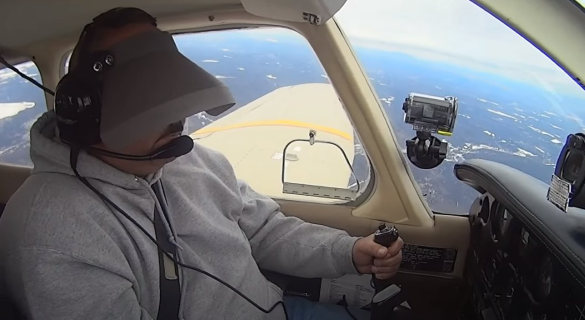
The flight portion of the IPC includes collecting essential route information and interpreting weather reports and forecasts applicable to the planned flight.
The pilot will be expected to be able to plan the complete the flight without coaching from the check pilot.
The pilot will demonstrate:
- Use of navigation charts for preflight planning
- Obtain and interpret weather reports and forecasts
- Prepare a flight plan and file the IFR flight plan with ATC
- Complete a preflight inspection of the aircraft including all systems essential for flight in IMC
- Demonstrate radio procedures including obtaining the clearance from ATC prior to flight
- Perform departure procedures
- Demonstrate basic aircraft control: attitude, altitude, speed, maneuvering
- Demonstrate enroute navigation and ATC communications
- Execute arrival procedures—including preparation for approach procedure, ATC communications, aircraft configuration
- Perform various types of approach procedures for which the aircraft is equipped
- Demonstrate missed approach procedures
- Demonstrate effective inflight decision making
- Demonstrate recognition and proper reactions to spatial disorientation
- Complete postflight procedures including closing flight plans.
Observation: During any flight, and especially during instrument flight, pilots are subject to distractions—unexpected turbulence, unexpected radio calls, passengers’ questions, a dropped chart or pen, etc.
It is important that you, as the instrument pilot, continue to maintain awareness of the aircraft attitude and navigation.
Example Situation
On one instrument training flight, in preparation of the pilot’s IPC, we were flying through a layer of fair-weather cumulus clouds at about 6,000 feet.
The conditions were excellent because we had not had many opportunities to fly in actual instrument conditions.
The pilot was setting up to enter a holding pattern.
While concentrating on setting the navigation instruments for the holding pattern, he was unaware that the aircraft had entered a slow, smooth, barely perceptible, increasing descending bank to the left.
As the instructor, I recognized an excellent training opportunity.
The base of the clouds we were well above 5,000 feet, and as we descended in a steep banked turn, which the pilot had not yet detected, we broke out of the clouds in a steep descent, looking down at green pastures.
I simply suggested he check his attitude.
Startled, he quickly, and correctly, recovered from the unusual attitude that was about to become a steep dive.
He had no problems with his instrument cross check on his IPC.
Related Article – 14 Taxiway Markings, Signs, and Lights Explained By An Actual Pilot
Expect Questions or Comments
According to AC 61-98D (5.4), regardless of the determination, the flight instructor should provide the pilot with a comprehensive analysis of his or her performance, including suggestions for improving any weak areas.
Therefore, you can expect a detailed post flight briefing of your performance.
Be prepared for critiques on how to do things better, or any weaknesses in your performance.
Even if your flight is completed as planned, an alert CFII will almost certainly find areas to critique, not because you are deficient, but how to be more efficient and precise.
The instructor may occasionally ask a question or make a comment.
Before responding or reacting, cross check navigation, attitude, and other performance indicators and respond when you are confident your response will not distract you from the basic job of flying the aircraft.
Also, make sure you understand Air Traffic Control instructions, and if necessary, request a clarification or confirmation from ATC.
This is best accomplished by a simple readback of the instructions.
Postflight:
After the flight, you can expect a detailed post flight debriefing.
According to AC 61-98D (5.4), regardless of the determination, the flight instructor should provide the pilot with a comprehensive analysis of his or her performance, including suggestions for improving any weak areas.
Assuming the outcome of the IPC flight is satisfactory, the IPC instructor will endorse and sign your logbook for instrument flight.
If, in the opinion of the IPC instructor, you are not fully proficient for instrument flight, the instructor will explain why, and will enter the time in your logbook as instrument flight instruction, usually with recommendations for additional training on specific knowledge topics and/or proficiency skills.
In this case, a subsequent IPC will be required to demonstrate competency in the weak area(s), before the IPC endorsement can be entered in your logbook.
4. How to Prep For An IPC
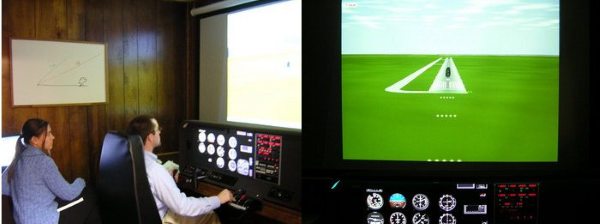
Instrument rated pilots are expected to remain current in their instrument flight knowledge and flying skills.
Preparation and Requirements
Preparation for the IPC may require a review or study of relevant documents and guides relating to IFR flight as well as some time practicing your flight procedures.
For study purposes, you should have` access to, and be familiar with, the contents of:
- FAA Instrument Proficiency Check (IPC) Guide
- Instrument Procedures Handbook (FAA-H-8038-16)
- Instrument Flying Handbook (FAA-H-8038-15B)
- Aviation Weather Services (AC00-45H)
- Airman’s Information Manual
- Advisory Circular 61-98D
- Appropriate enroute and instrument approach charts
- Pilots Operating Handbook or Aircraft Flight Manual for the aircraft used for the flight
- Access to the Airport Facilities directory
As part of your IPC preparation process, the CFII may suggest you complete the IPC Prep Course, ALC-38: Instrument Proficiency Check Review Guide.
The online course lets you review material at your own pace and focus attention on areas of particular interest.
Note, the actual time required to complete the IPC is based on the assessment of the instructor conducting the review.
You should know what is necessary to maintain your instrument currency, and when and why an IPC is not only required but is also why it is a prudent practice.
If you have not flown using instrument flight procedures for more than 12 months, it is recommended that you schedule one or more flights with a CFII to review various instrument flight procedures, including:
- Flight Planning
- Departures
- Basic attitude flight by reference to instruments
- Recovery from unusual attitudes or loss of orientation
- Enroute navigation
- Course interceptions and holding pattern entries
- Precision and non-precision instrument approaches
Alternatively, if you’re looking to save some money, then it makes sense to schedule at least a few hours in a flight simulator.
Spending time in the simulator will allow you to nail down the procedures, without spending an arm and a leg.
Related Article – ATP Flight School Review: My Experience as a Student
Summary
Like everything else in flying, knowledge and understanding are the keys to successfully demonstrating critical piloting and navigation skills during an IPC.
As someone who has conducted many IPC’s in my flight instructing career, IPC’s are not to be feared.
Rather, they should be looked upon as a way for you to better your overall flying skills.
After all, the old saying ‘a good pilot is always learning’ rings true throughout your aviation career!

